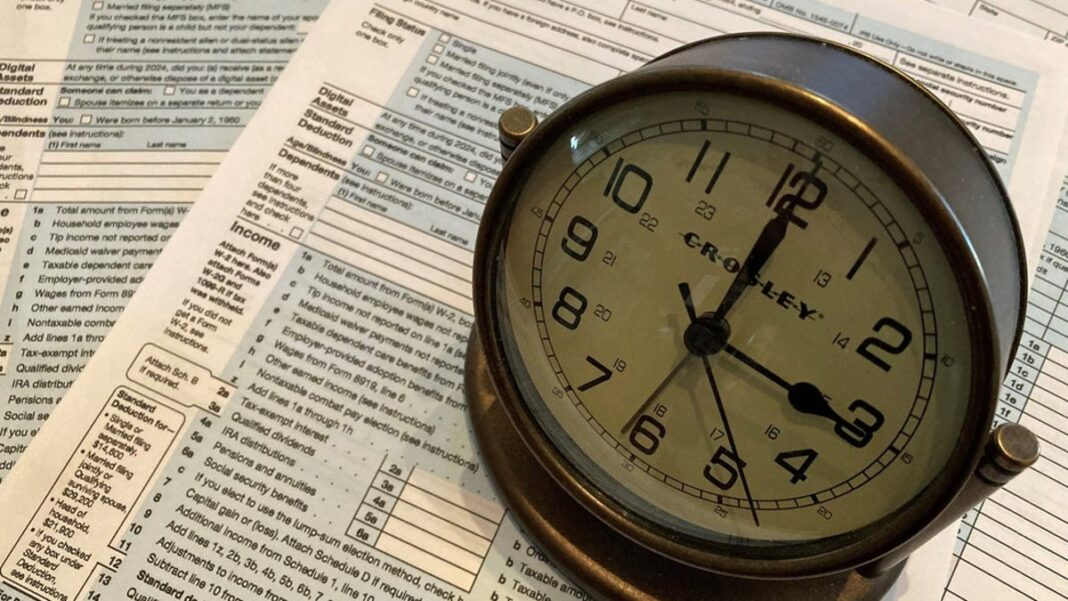IRS Offers Tax Relief to Victims of California Wildfires: What You Should Know.
The IRS has announced that individuals and businesses impacted by the severe wildfires in Southern California will be granted tax relief.
For residents or business owners in Los Angeles County or areas recognized for assistance by the Federal Emergency Management Agency (FEMA), any tax filings or payments that were due after January 7, when the wildfires started, have automatically been extended to October 15. Should the federal government widen the disaster declaration to include additional counties, affected residents and businesses will also receive the same tax relief. The current list of eligible regions is available on the IRS’s website for disaster tax relief.
“Essentially, when a disaster is declared, all federal tax activities are paused,” explained Miklos Ringbauer, a CPA based in Los Angeles. “This means that taxpayers in the affected areas can postpone their income tax payments and retirement contributions without incurring penalties or interest.”
Do I need to apply for tax relief?
Depending on your specific situation, you may or may not need to reach out to the IRS. Here’s a summary:
- If the IRS has your address in the disaster zone, tax relief will be automatically applied and you won’t need to contact the IRS, according to their guidance.
- If you’ve been affected but don’t have a record with the IRS showing an address in the disaster area—perhaps because you moved there after your last tax return—you might receive a notice for late filing or payment for the postponement period. In such cases, contact the number on the notice to request a waiver of the penalty.
- If you reside outside the disaster zone but have essential documents located in the affected area that you need to meet deadlines during the extension period, you should call the IRS at 866-562-5227.
- If your tax preparer is impacted but you do not live in the disaster area, you may still receive an extension. “While it’s not automatic, your CPA can request assistance from the IRS to help avoid penalties and late fees for clients,” he noted. “This is more common now due to Covid-19, as many people have relocated.”
What’s extended to October 15?
The IRS has specified several items eligible for extension until October 15 for individuals and businesses:
- Individual income tax returns and payments that typically are due on April 15.
- Contributions to IRAs and health savings accounts for eligible taxpayers for the 2024 tax year.
- Estimated quarterly income tax payments that are normally required on January 15, as well as payments due on April 15, June 16, and September 15 for 2024.
- Quarterly payroll and excise tax returns that usually are due on January 31, April 30, and July 31.
- Returns for calendar-year partnerships and S corporations that are generally due on March 17.
- Calendar-year corporate and fiduciary returns and payments that are due on April 15.
- Returns for tax-exempt organizations that are due on May 15 for the calendar year.
Additionally, the IRS mentioned that for businesses, any penalties associated with payroll and excise tax deposits due between January 7 and January 22 will be waived, as long as the deposits are made by January 22.
Other benefits of tax relief
In addition to the extensions listed above, taxpayers may benefit from other forms of assistance, such as:
- Individuals and businesses in the affected areas who sustained unreimbursed or uninsured losses related to the disaster can claim these losses on either their 2025 tax return or file an amended return for the previous year.
- Disaster assistance will not be counted as income for tax purposes. This includes support such as housing aid or food from charities, friends, or aid agencies, as explained by Ringbauer. “It’s considered a nontaxable event,” he added.
- Taxpayers might be eligible for a special disaster distribution from their retirement accounts without incurring the additional 10% early withdrawal penalty. This option allows them to spread the income over three years, according to the IRS. Hardship withdrawals may also be available.
Where to get assistance?
Once you feel safe and are ready to start rebuilding your financial situation, you might need to sort out your finances for loans, mortgages, or taxes. Ringbauer suggests starting with these resources:
- Your financial advisor might have your records readily available.
- The IRS will have your wage income data recorded from June to August, so you can request an IRS transcript for access to this information, Ringbauer advised.
Support for disaster relief activists
Those who assist in helping local residents and businesses in affected disaster areas may also qualify for extended filing and payment deadlines, according to Ringbauer.
Individuals who contribute money or goods should ensure that the charitable organizations they work with are legitimate in order to claim their donations as tax-deductible, he emphasized.
Medora Lee is a reporter specializing in finance, markets, and personal finance.

